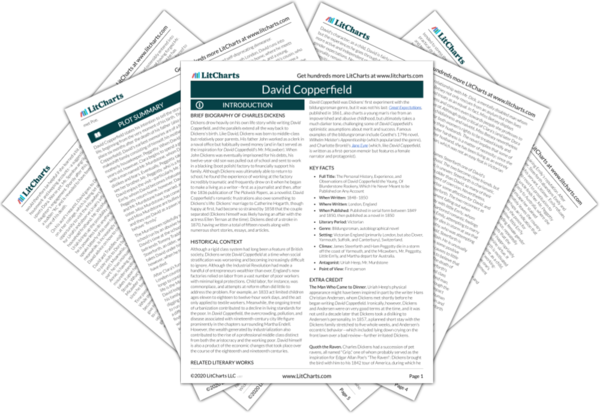Ironically, the selflessness that makes Agnes such an ideal wife for David is also what caused David to overlook her for so long. Although this double bind is eventually resolved, it points to one of the many tensions present in nineteenth-century gender norms. Another issue the novel works to resolve here is David's prior marriage to Dora—in this case, by suggesting that Dora herself has blessed the marriage from beyond the grave. Although it later emerges that Dora did in fact give Agnes permission to marry David, readers may find this particular passage strange or even troubling; David's suggestion that the moment inspires him "tenderest recollections" of Dora implies that Dora was just a stepping stone on the way to marriage with Agnes.
